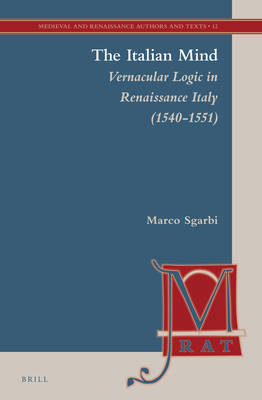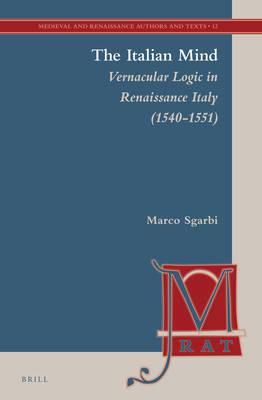
- Afhalen na 1 uur in een winkel met voorraad
- Gratis thuislevering in België vanaf € 30
- Ruim aanbod met 7 miljoen producten
- Afhalen na 1 uur in een winkel met voorraad
- Gratis thuislevering in België vanaf € 30
- Ruim aanbod met 7 miljoen producten
Zoeken
€ 232,45
+ 464 punten
Omschrijving
From the twelfth to the seventeenth century, Aristotle's writings lay at the foundation of Western culture, providing a body of knowledge and a set of analytical tools applicable to all areas of human investigation. Scholars of the Renaissance have emphasized the remarkable longevity and versatility of Aristotelianism, but they have mainly focused on the Latin tradition. Scarce, if any, attention has gone to vernacular works. Nonetheless, several important Renaissance figures wished to make Aristotle's works accessible and available outside the narrow circle of professional philosophers and university professors to a broad set of readers. The thesis underpinning this book is that Italian vernacular Aristotelianism, especially in the field of logic, made fundamental contributions to the thought of the period, anticipating many of the features of early modern philosophy and contributing to a new conception of knowledge.
Specificaties
Betrokkenen
- Auteur(s):
- Uitgeverij:
Inhoud
- Aantal bladzijden:
- 256
- Taal:
- Engels
- Reeks:
- Reeksnummer:
- nr. 12
Eigenschappen
- Productcode (EAN):
- 9789004264090
- Verschijningsdatum:
- 13/02/2014
- Uitvoering:
- Hardcover
- Formaat:
- Genaaid
- Afmetingen:
- 160 mm x 241 mm
- Gewicht:
- 521 g

Alleen bij Standaard Boekhandel
+ 464 punten op je klantenkaart van Standaard Boekhandel
Beoordelingen
We publiceren alleen reviews die voldoen aan de voorwaarden voor reviews. Bekijk onze voorwaarden voor reviews.








